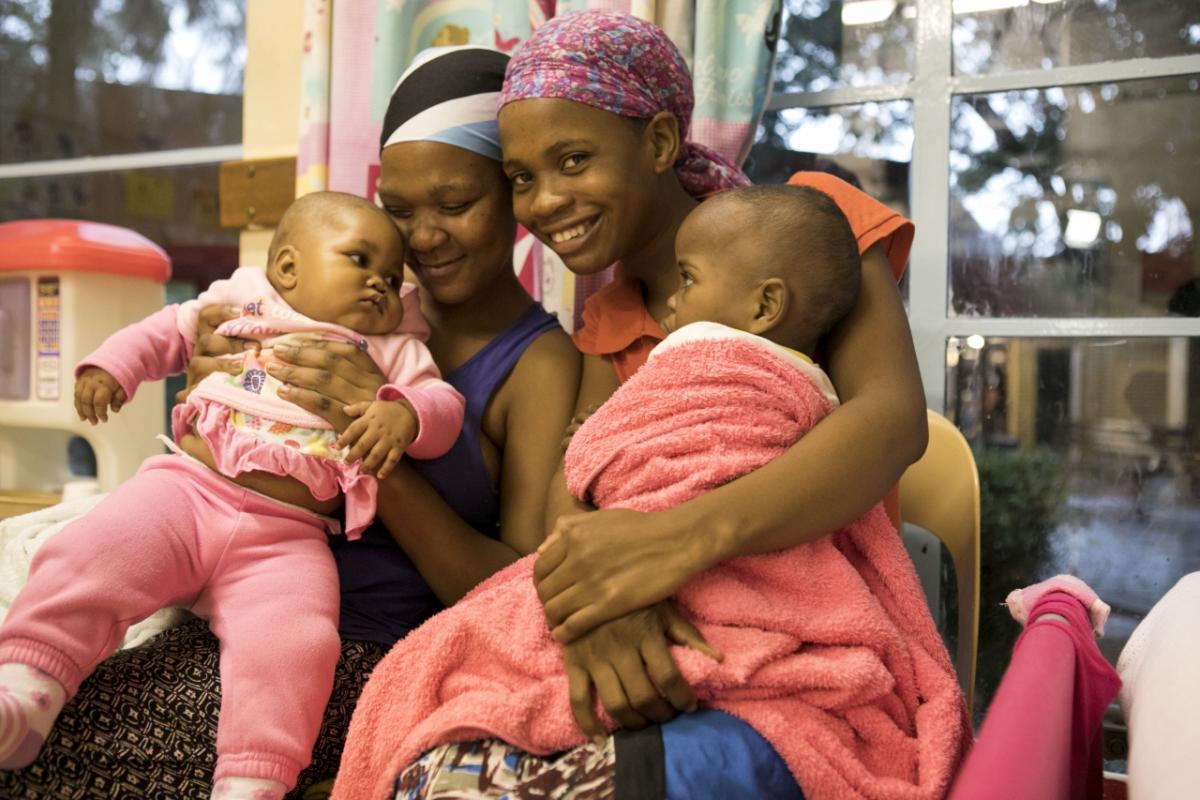Transforming Pediatric Cancer Care In Africa

When Joseph Lubega, M.D., returned to Uganda in 2016 to care for children with cancer, the grim reality was that up to 90 percent of them would not survive. Inadequate health care and a severe lack of specialists meant that proper diagnosis, treatment and care were simply out of reach.
But one year later, the tide began to turn, when Global HOPE (Hematology-Oncology Pediatric Excellence), a $100-million initiative funded by the Bristol-Myers Squibb Foundation, Texas Children’s Cancer and Hematology Centers and Baylor College of Medicine International Pediatric AIDS Initiative at Texas Children’s Hospital (BIPAI), began building a pediatric hematology-oncology network to increase long-term capacity to diagnose and treat thousands of children with cancer and blood disorders in southern and east Africa.
Global HOPE is drawing from the success of the Bristol-Myers Squibb Foundation’s groundbreaking HIV/AIDS program by focusing on partnerships and creating an infrastructure that is transforming pediatric hematology-oncology treatment and outcomes. Two pediatric Centers of Excellence, one in Uganda and another in Botswana, will serve as hubs where children can be diagnosed by a pediatric cancer specialist and then return to local centers for treatment closer to where they live.
Dr. Lubega, director of the East Africa Pediatric Hematology-Oncology Fellowship program, is one of the first three pediatric oncologists in Uganda trained through the program. Together, he and his colleagues placed 673 new pediatric oncology patients and 255 pediatric hematology patients into treatment during the program’s first year.
One of the first children to receive treatment was nine-year-old Fortunate, who lives in a village in West Uganda, where care and treatment for pediatric cancer consists of local therapies recommended by traditional healers in the village. When she was eight years old, Fortunate developed a sarcoma in a facial muscle and had to wear a scarf to hide the large, open tumor that disfigured her face and to keep the flies off the wound.
As her name implies, Fortunate was indeed fortunate. Her mother was unhappy with the local remedies, so she took her daughter to see Dr. Lubega. One year later, following surgery, Fortunate is undergoing radiation treatment and her cancer is in remission.
When Fortunate comes back for her check-ups she usually comes with another child from the village, who also requires treatment. “Parents see the positive outcome and now realize their children can be treated for what they thought was untreatable,” Dr. Lubega says.
“The training model is essential to the long-term success of the Global HOPE program,” he says. “Specialists and the entire team around them – nurses, researchers, medical officers and administrative staff – are being trained in a Center of Excellence in the region where they will be delivering care,” he says. “This is a completely new way of doing things here.” These specialist teams are bringing hope where previously it did not exist.
Click here to learn more about Bristol-Myers Squibb’s commitment to corporate social responsibility and global citizenship.

